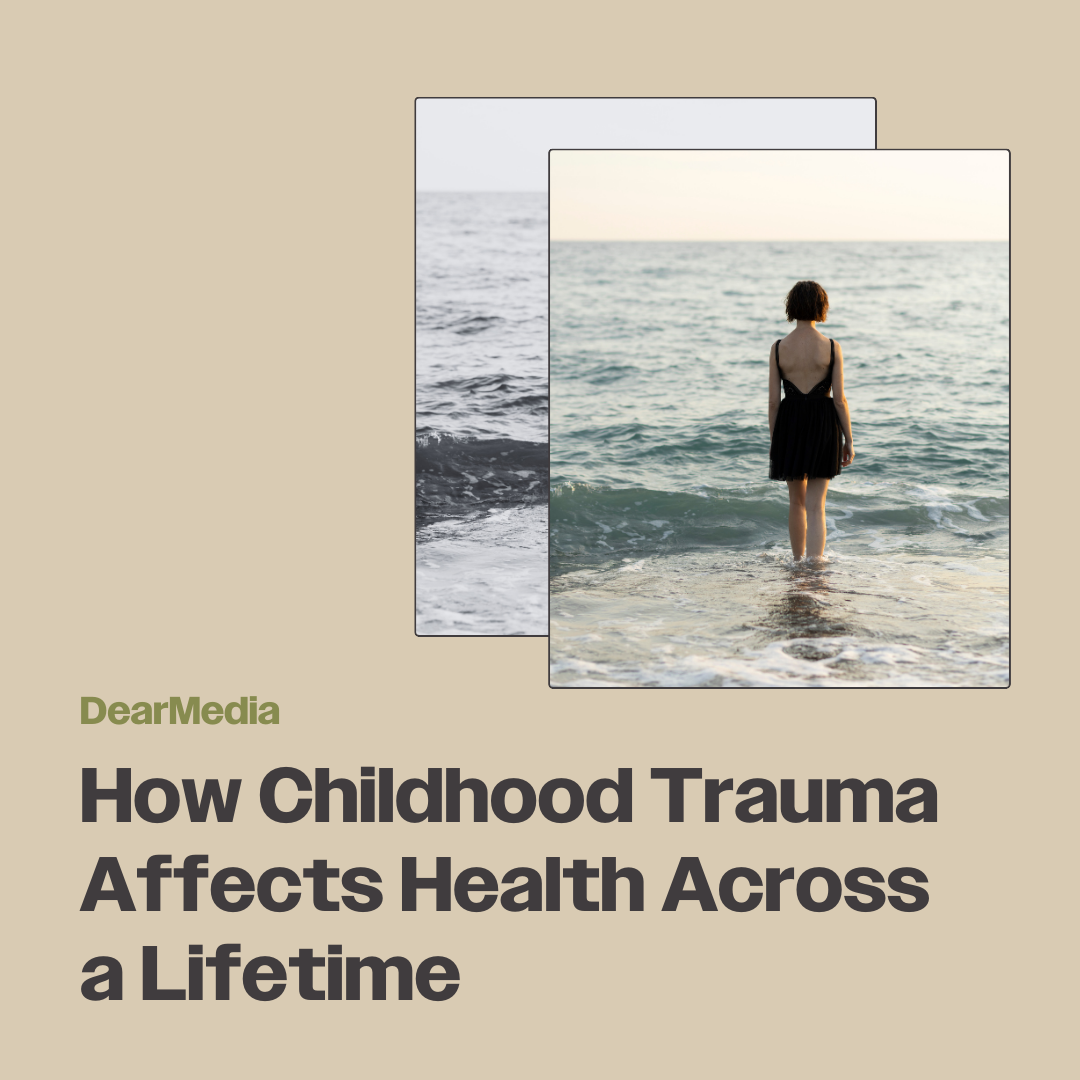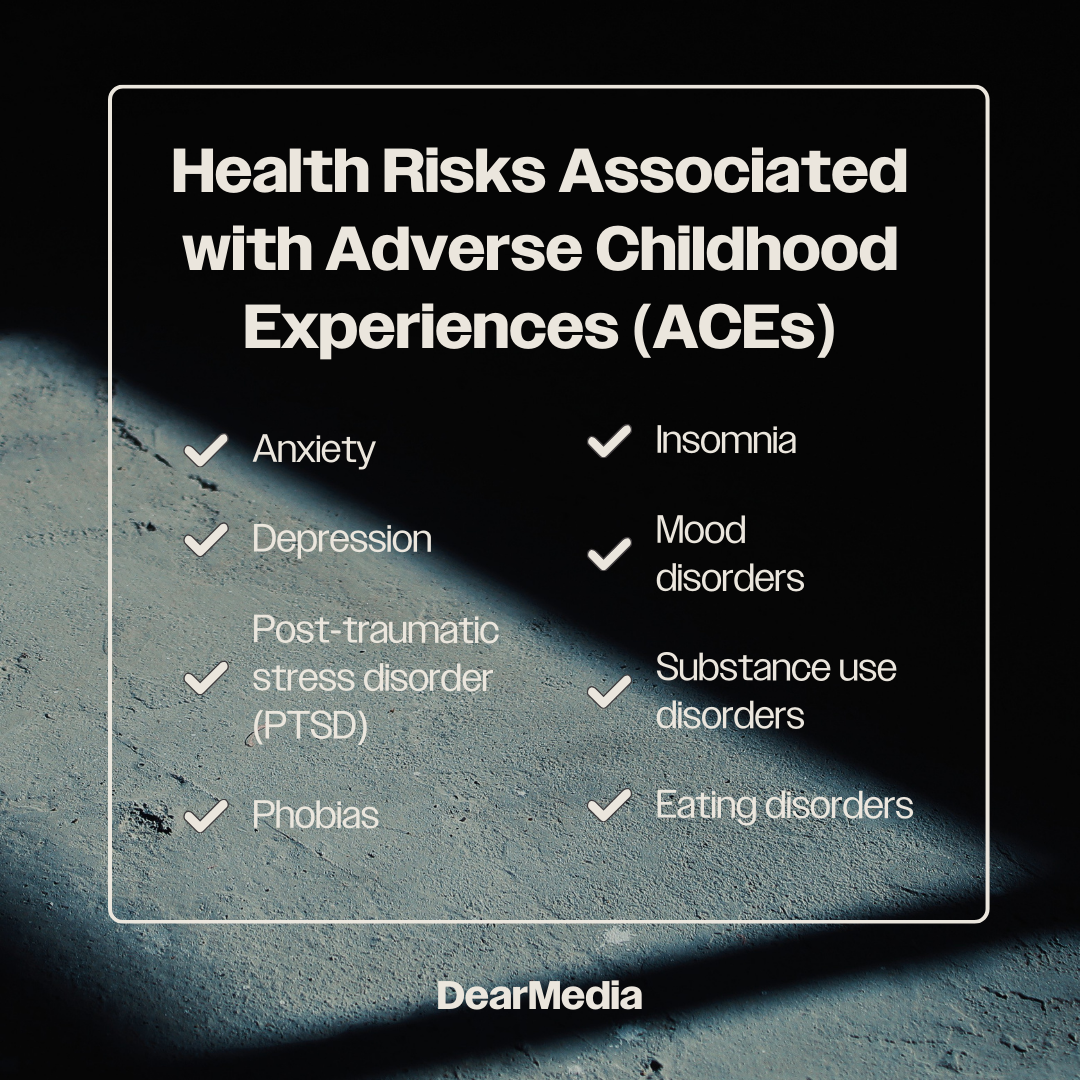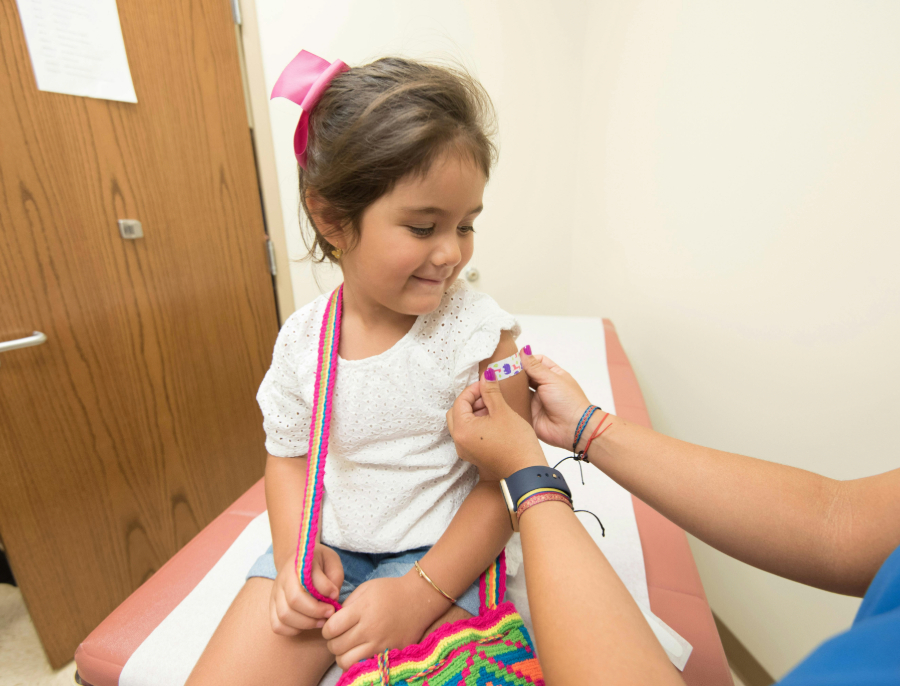How Childhood Trauma Affects Health Across a Lifetime

Childhood trauma usually refers to severe adverse childhood experiences (or ACEs). These ACEs, or traumatic events, are dangerous, scary, or violent occurrences that threaten a child’s well-being, whether physically or mentally. And, before you think these don’t apply to you and your upbringing 64% of people have experienced one of the ACEs! So, yeah, statistically you survived one. And, when we say, “survived,” we mean it because the ACEs can have crazy harmful life-long consequences.
There are 10 types of experience classified as ACEs, including:
- Physical abuse
- Emotional abuse
- Sexual abuse
- Physical neglect
- Emotional neglect
- Alcohol or drug abuse by a parent
- Mentally ill parent
- Divorce
- Incarceration of parent
- Childhood Domestic Violence
Childhood trauma can affect brain development as well as every other aspect of a person’s life. Unresolved childhood trauma and adversities can manifest themselves as a ton of health issues like self-harm and alcohol abuse. They’re super damaging!
We first heard about about this issue when were heard pediatrician Nadine Burke Harris’s TED Talk on how repeated neglect and abuse, as well as having parents who struggle with substance abuse and/or mental health problems, can have a significant effect on that child’s brain development. She explains how those events impact a child through their whole life!
Isn’t it wild how events from our past can be destructive to us even years later??? You can learn even more about how toxic traumas hurt your health in this episode of The Art of Being Well. But, today we’re going to be zeroing in on adverse childhood experiences and how they manifest throughout a person’s life.
Here’s what happens:

How Childhood Trauma Affects Health Across a Lifetime
Childhood
Adverse childhood experiences (ACEs) can contribute to an increased risk of negative physical and psychological health conditions in kids! Children may have heart problems, a weakened immune system, altered brain development, hormonal imbalances, impaired growth, and more!!! Even tummy aches and headaches are common!
Beyond the physical challenges, kids with ACEs are more likely to rely on prescription medication and medical/educational services than children with no ACEs. Often, they have emotional, behavioral, or developmental issues, too.
These children also frequently suffer from body dysregulation, which means they respond differently to various sensory stimuli. Basically, they might be hypersensitive to smells, sounds, light, or touch, or they might experience anesthesia and analgesia, where they don’t feel pain, touch, or internal physical sensations.
Teen Years
Many of those issues from childhood carry into teen years if ACEs are left untreated! But usually you’ll see more effects of the brain damage as they’re challenged more academically. Issues with thinking clearly, problem-solving, or reasoning are all super common.
Plus, self-regulation and impulse control can be a huge challenge! Often, these teens will manifest high-risk behaviors at this age like:
- Self-harm
- Risky sexual activities
- Excessive risk-taking
- Engaging in illegal activities
Adulthood
Adverse childhood experiences (ACEs) can significantly impact adults, even years or decades after the trauma occurred. Want to know what’s wild??? These traumatic childhood experiences can reduce a person’s life expectancy by almost 20 years, compared to someone without childhood trauma! It’s so tragic!

Health conditions that can occur because of an ACE include:
- Anxiety
- Depression
- Post-traumatic stress disorder (PTSD)
- Phobias
- Insomnia
- Mood disorders
- Substance use disorders
- Eating disorders
ACEs can also contribute to chronic health conditions like heart disease and cancer. The reason is that chronic, toxic stress negatively impacts both the way your cells divide and replicate, leading to cancer, as well as how your heart functions due to increased blood pressure.
Also, remember those high-risk behaviors from the teen years? If left untreated, those behaviors will continue into adulthood and present in ways like:
- Smoking or using tobacco products
- Misusing prescription medicines
- Experimenting with illicit drugs or substances
- Engaging in risky sexual behaviors
- Attempting suicide or self-harm
Podcast Episodes to Help You Heal:
If you’re struggling with the effects of adverse childhood experiences, don’t feel any shame. Like we said . . . over half the population deals with ACEs and not everyone got the treatment they needed as kids. Of course, see a licensed professional, but we hope these podcast episodes can help you find wisdom, community, and hope!
- Stop the Stigma and Shift the Shame: A Spiritual Conversation About Mental Health and Trauma – Dear Gabby
- Behavioral Therapist Molly Carmel Shares How We Can Navigate Our Personal Healing Journeys From Eating Disorders, Addiction, & Trauma – Real Pod
- Healing Trauma and Limiting Beliefs through EFT and Reiki – The Heal Podcast
- How to Heal Trauma, Develop Emotional Competence, and Understanding Personality Disorders – Him & Her
- Insecure Men & Childhood Trauma – Almost Adulting
- Overcoming Dark Days, the Power of Prayer, & Finding True Love – Barely Filtered

Understanding how childhood trauma affects your health throughout your life makes it easier to heal your past.
At Dear Media, we’re big proponents of speaking openly about our experiences, good and bad. It’s important, not only to raise awareness but to heal and move past the negative experiences that hold us back. Let’s have the conversation, start trauma release exercises, and find professionals that can help us reach our full potential!
We hope to make you feel empowered and inspired to overcome whatever’s holding you back. Be sure to check out our blog for all things life, relationships, pop culture, and more. And remember, you’re not alone!!!



















